Who is Yevgeny Prigozhin? Wagner Group chief killed in plane crash
Former convict, catering impresario and ally of Vladimir Putin became increasingly vocal critic of Kremlin’s defence chiefs during war in Ukraine
Your support helps us to tell the story
From reproductive rights to climate change to Big Tech, The Independent is on the ground when the story is developing. Whether it's investigating the financials of Elon Musk's pro-Trump PAC or producing our latest documentary, 'The A Word', which shines a light on the American women fighting for reproductive rights, we know how important it is to parse out the facts from the messaging.
At such a critical moment in US history, we need reporters on the ground. Your donation allows us to keep sending journalists to speak to both sides of the story.
The Independent is trusted by Americans across the entire political spectrum. And unlike many other quality news outlets, we choose not to lock Americans out of our reporting and analysis with paywalls. We believe quality journalism should be available to everyone, paid for by those who can afford it.
Your support makes all the difference.Once a businessman with a catering empire friendly with Vladimir Putin, Yevgeny Prigozhin manoeuvred himself into a position so powerful that, as Russia’s war in Ukraine progressed, he could openly question his paymasters’ strategy.
The owner of the Kremlin-allied Wagner Group, the mercenary force that has fought some of the Russian military’s toughest battles in Ukraine – most notably the drawn-out pursuit of Bakhmut – the 62-year-old stepped into his most dangerous role yet this summer: preaching open rebellion against his country’s military leadership.
Now, two months after his men’s attempted uprising ended in uneasy peace talks, Prigozhin is dead in a plane crash just outside of Moscow.
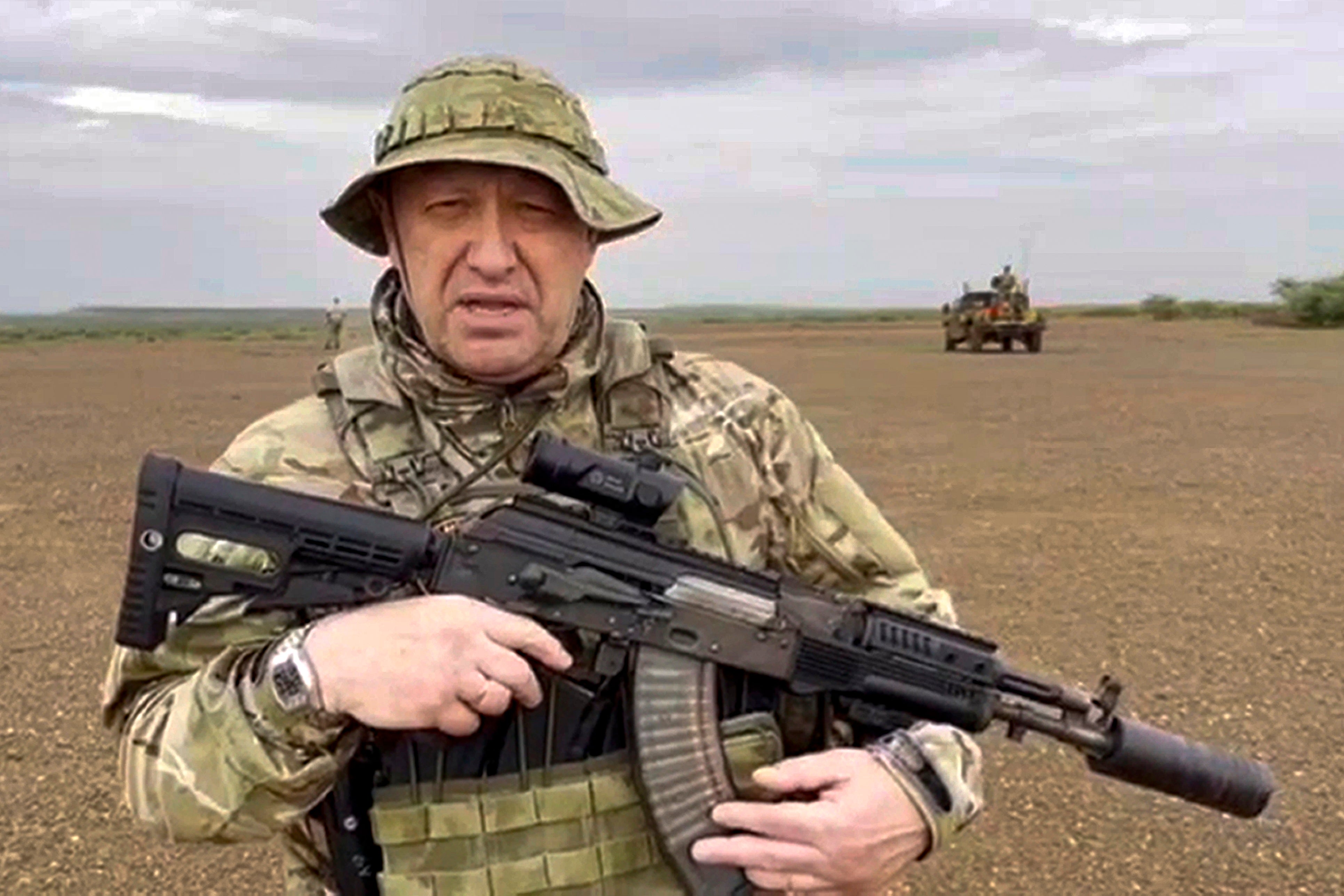
On 23 August, a private plane he was on board came down in the Tver region after taking off from the capital en route to St Petersburg, killing 10 people on board.
Four days later, Russia’s Investigative Committee has confirmed that after genetic tests he was one of the victims. His deputies Dmitry Utkin and Valery Chekalov were also on the passenger list for the flight.
There have been claims - denied by the Kremlin - that the crash was retribution for the events of 23 June, when the Wagner chief finally escalated what had been months of scathing criticism of Russia’s conduct of the war by calling for an armed uprising to oust Russia’s defence chiefs Valery Gerasimov and Sergei Shoigu.
His men occupied Rostov-on-Don and marched on Moscow, shooting down a number of military helicopters, killing their pilots as they advanced. Russian security services reacted immediately, opening a criminal investigation and demanding Prigozhin’s arrest.
In a sign of how seriously the Kremlin took the threat posed, riot police and the National Guard scrambled to tighten security at key facilities in the Russian capital, including government agencies and transport infrastructure, Tass reported. Putin branded the rebellion an act of treachery.
Prigozhin urged Russian civilians to join his “march to justice” and the situation remained extremely volatile throughout the following Saturday before peace talks, seemingly mediated by Belarussian president Alexander Lukashenko, brought the standoff to a peaceful conclusion.

The Kremlin said that to avert bloodshed, Prigozhin and some of his fighters would leave for Belarus and a criminal case against him for armed mutiny would be dropped.
Putin’s spokesman Dmitry Peskov revealed that a three-hour meeting had taken place five days after the mutiny, on 29 June with 35 people in attendance, including Wagner unit commanders, who reiterated their loyalty to their leader.
But confusion subsequently surrounded the implementation of that deal and it was not clear whether the mercenary leader ever made it to Minsk.
Before long, he was seen back in his homeland, appearing at the Trezzini Palace Hotel in St Petersburg, apparently on the sidelines of the Russia-Africa Summit.
On 5 July, state television said an investigation against him was still being pursued and broadcast footage showing cash, passports, weapons and other items it said were seized in a raid on one of his properties.
In August, he appeared in a video that he suggested was shot in Africa, where Wagner has operations in several countries.
‘Putin’s chef’
The relationship between Prigozhin and Putin went way back, both having been born in Leningrad, now St Petersburg, the former born on 1 June 1961.
During the final years of the Soviet Union, while the president was then a lowly KGB agent, Prigozhin served nine years in prison for crimes including robbery and fraud.
After his release in 1990, he launched a career as a caterer in his home town, owning a hot dog stand and then a string of upmarket restaurants that attracted Mr Putin’s interest. In his first term in office, the Russian leader took then-French president Jacques Chirac to dine at one of them.
“Vladimir Putin saw how I built a business out of a kiosk, he saw that I don’t mind serving to the esteemed guests because they were my guests,” Prigozhin recalled in an interview in 2011.
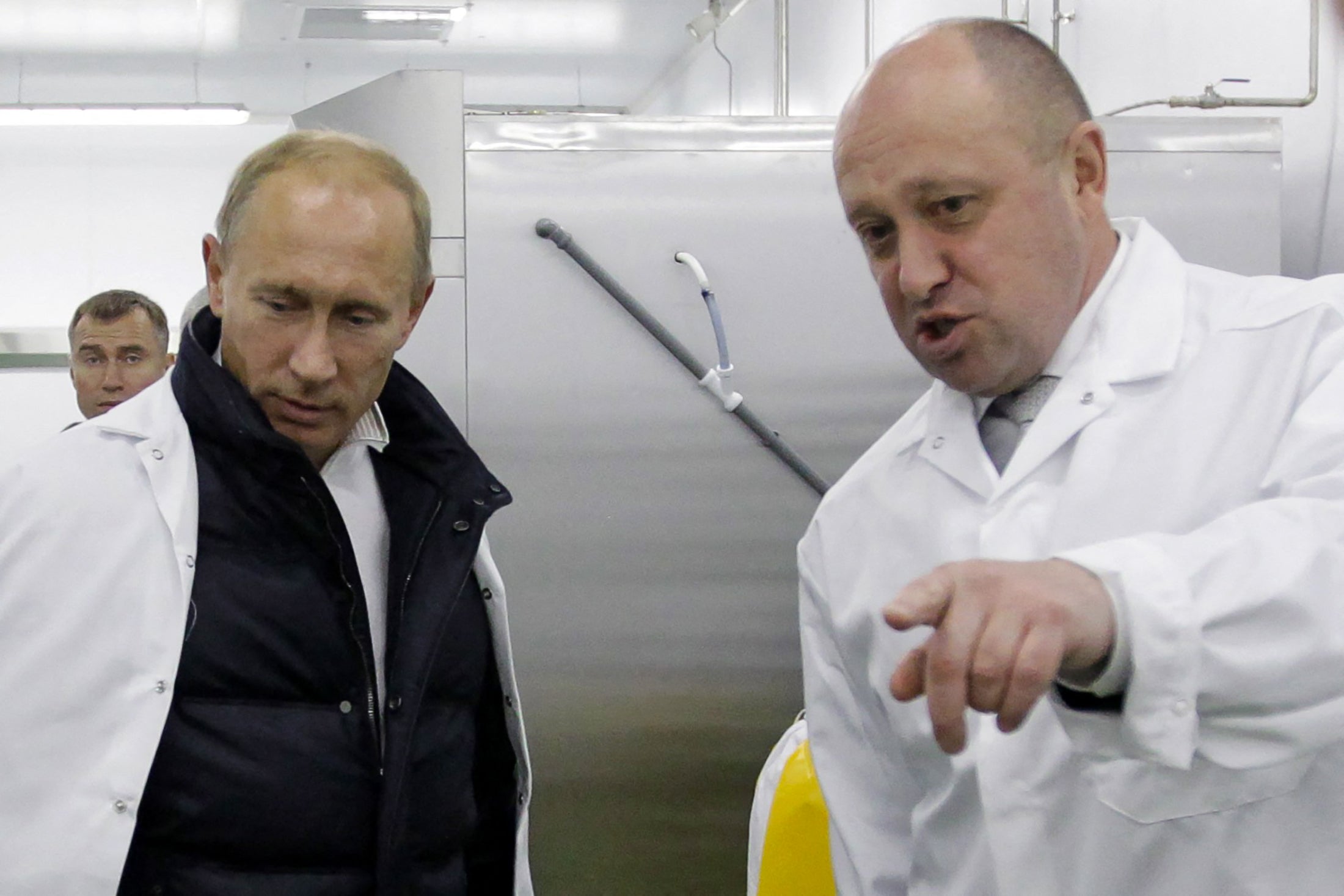
His businesses expanded significantly into catering. Leveraging political connections, Prigozhin was awarded major state contracts and, in 2010, Mr Putin helped him open his own factory, built on generous loans from a state bank.
In Moscow alone, school meals contracts for his company Concord were worth millions. He also organised catering for Kremlin events for several years – earning him the nickname “Putin’s chef”, although more recently he joked that “Putin’s butcher” would be more appropriate.
Concord has also provided catering and utility services to the Russian military.
In 2017, opposition figure and corruption fighter Alexei Navalny accused Prigozhin’s companies of breaking antitrust laws by bidding for around £300m in defence ministry contracts.
Prigozhin reportedly had a net worth of $1 billion at the time of his death.
Military connection
In 2014, he founded Wagner, a Kremlin-allied private military company whose mercenary fighters have come to play a central role in Mr Putin’s projection of Russian influence in trouble spots around the world, including Syria, Libya and the Central African Republic.
The United States has sanctioned it and accused it of atrocities, which Prigozhin denied.
Wagner fighters allegedly provide security for national leaders or warlords in exchange for lucrative payments, often including a share of gold or other natural resources. US officials say Russia may also be using Wagner’s work in Africa to support its war in Ukraine.
Prigozhin’s mercenaries have become a major force in that conflict, fighting as counterparts to the Russian army in battles against Ukrainian forces.
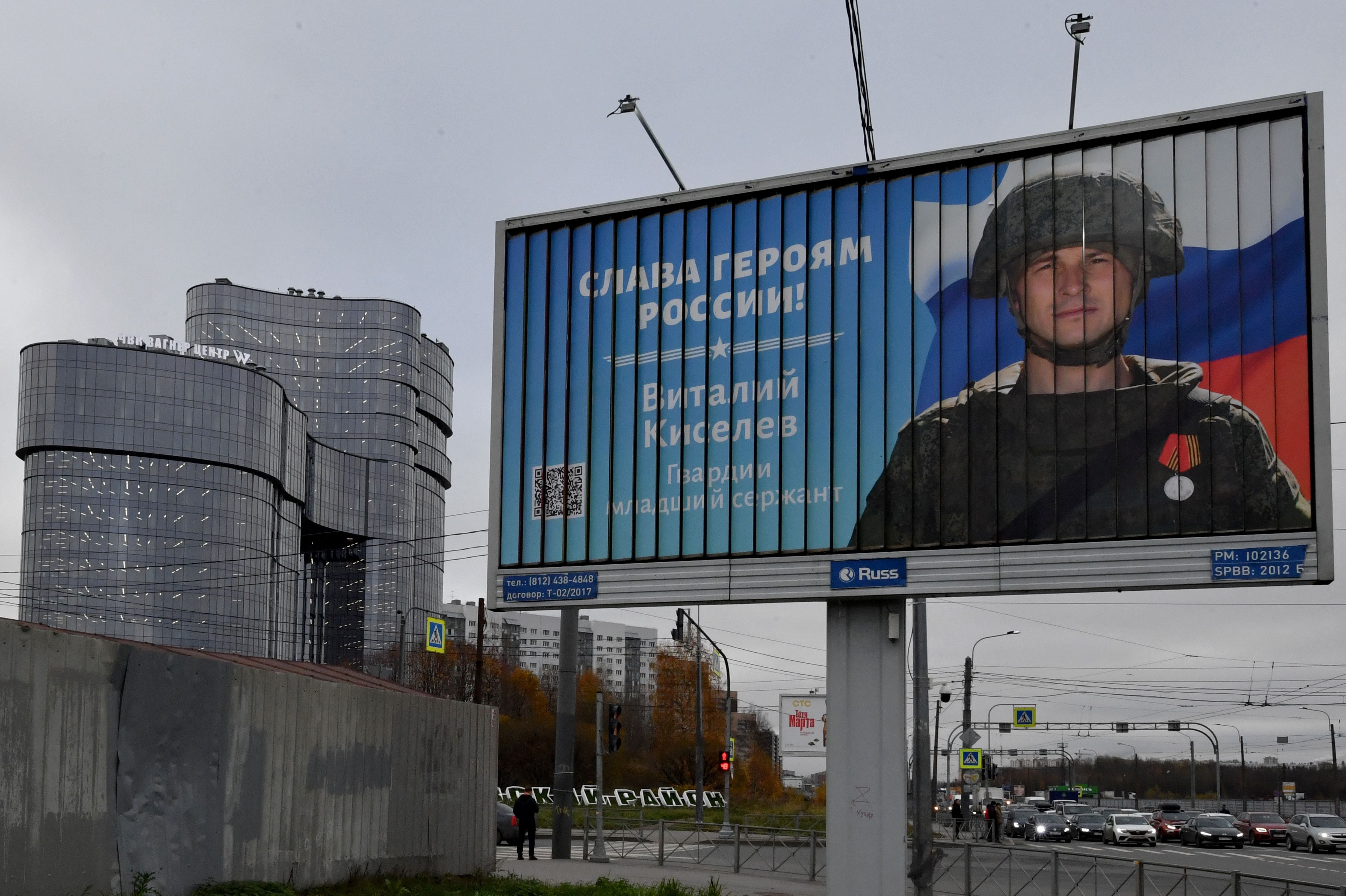
That includes Wagner fighters battling for Bakhmut, where the bloodiest and longest battles have taken place.
By May this year, Wagner forces and Russian soldiers appeared to have largely won the city, a victory with strategically slight importance for the invader, despite the cost in lives.
The US estimates that nearly half of the 20,000 Russian troops killed in Ukraine since December were Wagner fighters in Bakhmut.
Prigozhin’s soldiers-for-hire include thousands of inmates recruited from Russian prisons.
Raging against Russia’s generals
As his forces fought and died en masse in Ukraine, Prigozhin increasingly raged against the Russian military’s top brass. He used social media to trumpet Wagner’s successes and accuse the army of incompetence and even treason.
In a video released by his team in May, Prigozhin stood next to rows of bodies he said were those of Wagner fighters.
He accused Russia’s regular military of incompetence and of starving his troops of the weapons and ammunition they needed to fight.
“These are someone’s fathers and someone’s sons,” Prigozhin declared bitterly. “The scum that doesn’t give us ammunition will eat their guts in hell.”
US election meddling
The former convict and Kremlin caterer has acknowledged that he founded and financed the Internet Research Agency, a company that Washington says is a “troll farm” that meddled in the 2016 US presidential election. In November 2022, Prigozhin said he had interfered in US elections and would do so again.
He and a dozen other Russian nationals and three Russian companies were all charged with operating a covert social media campaign aimed at fomenting discord ahead of Donald Trump’s victory. They were indicted as part of special counsel Robert Mueller’s investigation into Russian election interference.
The US Treasury Department subsequently sanctioned Prigozhin and associates repeatedly in connection with both the alleged election interference and his leadership of Wagner.
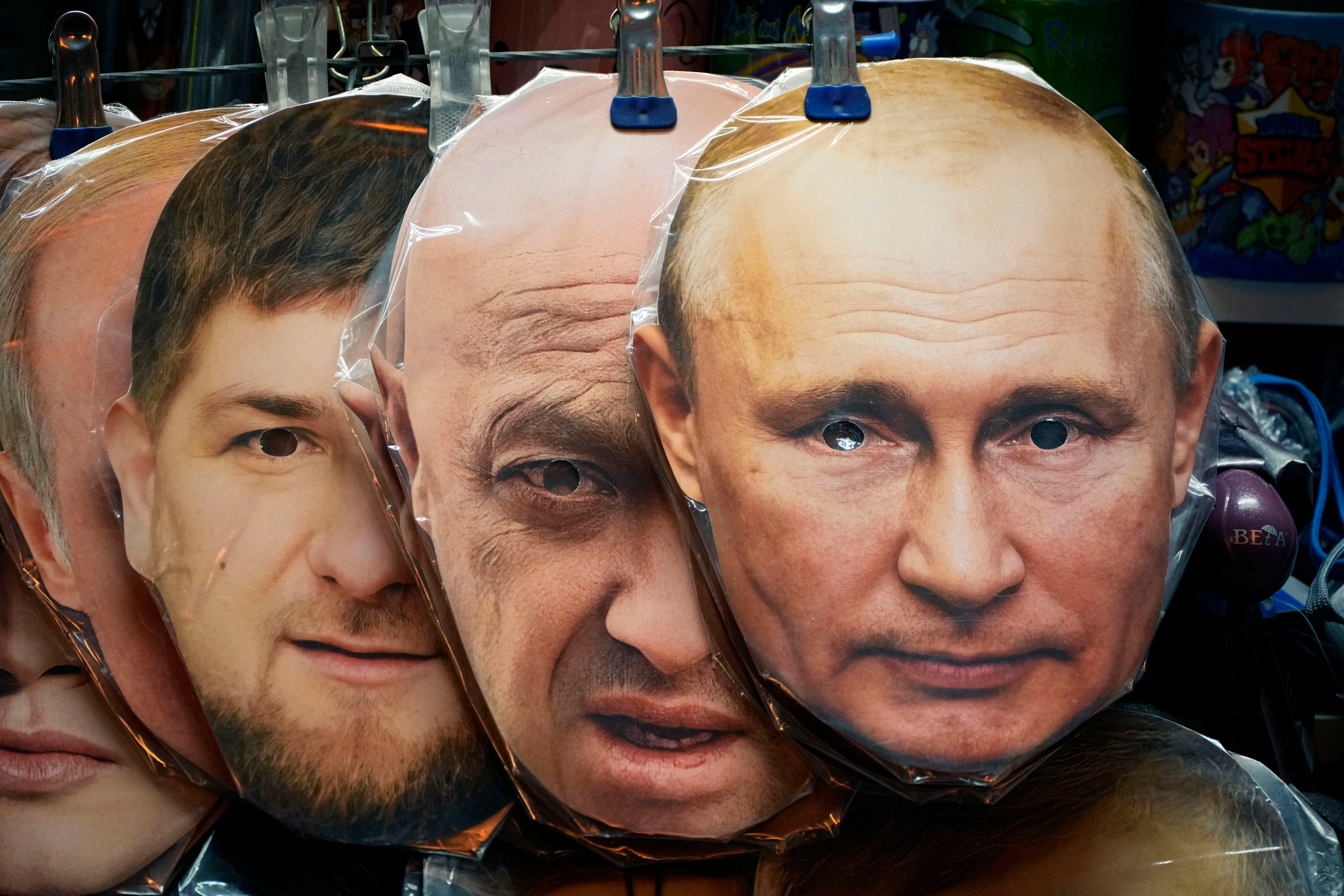
After the 2018 indictment, the RIA Novosti news agency quoted Prigozhin as saying, in a clearly sarcastic remark: “Americans are very impressionable people; they see what they want to see. I treat them with great respect. I’m not at all upset that I’m on this list. If they want to see the devil, let them see him.”
The Biden White House called him “a known bad actor” prior to his death and State Department spokesperson Ned Price said Prigozhin’s “bold confession, if anything, appears to be just a manifestation of the impunity that crooks and cronies enjoy under President Putin and the Kremlin”.
Avoiding challenges to Putin
As Prigozhin grew more outspoken against the way Russia’s conventional military had conducted the fighting in Ukraine, he continued to play a seemingly indispensable role for the Russian offensive and appeared to suffer no retaliation from Mr Putin for his criticism of Moscow’s generals.
Media reports at times suggested Prigozhin’s influence over the president was growing and that he was hoping to be rewarded with a prominent political post, although some analysts felt this assessment of his ambitions was overstated.
“He’s not one of Putin’s close figures or a confidant,” said Mark Galeotti of University College, London, who specialises in Russian security affairs, speaking on his podcast, In Moscow’s Shadows.
“Prigozhin does what the Kremlin wants and does very well for himself in the process. But that’s the thing – he is part of the staff rather than part of the family,” he said.
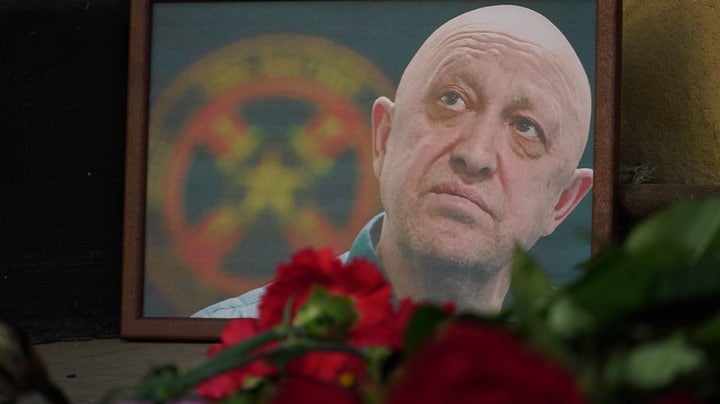
A dramatic end
Prigozhin was killed in a plane crash just two months after his abortive mutiny on Russia’s top military chiefs, which culminated in a march on Moscow.
His private jet came down north-west of Moscow on 23 August, killing all those on board. His death was confirmed on Sunday, four days after the crash.
His right-hand man Dmitry Utkin was also on board the Embraer Legacy 600 jet, as well as five other passengers and three crew members, according to the passenger list.
The Kremlin has denied speculation it was to blame for the crash.
During a conference call with journalists on Friday, Kremlin spokesman Dmitry Peskov told the BBC there was “lots of speculation” around the “tragic” deaths.
“In the West, of course, this speculation comes from a certain angle. It’s all a complete lie,” Mr Peskov went on.




Join our commenting forum
Join thought-provoking conversations, follow other Independent readers and see their replies
Comments